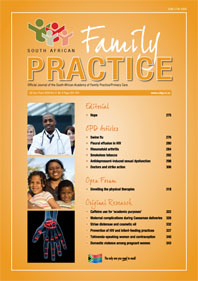Doctors and strike action: Can this be morally justifiable?
Keywords:
strike action, utilitarian, social contract, moral contract, fidelity, beneficence
Abstract
Strikes are rare events in the history of medicine. Mainly their occurrences have been initiated by junior doctors as is the case in South Africa. In the most recent strike action by South African doctors, the root cause appears to be the long-overdue salary increases with specific attention focused on the government’s failure to implement the Occupation Specific Dispensation (OSD). It is quite difficult to separate fact from exaggeration during doctors’ strikes due to media hype and the variety of players involved. Proximity to life and death, and contractual obligations are put forward as the reasons doctors are judged by standards higher than ordinary mortals. For patients, some of the harms occurred may include the following: work-loss (if employed), wasted money for transport, treatment delays, prolongation of suffering, irreversible damage to health, dangerous drug interruptions, and death. Concerning doctors, some benefits of a strike action may result in financial gain, improved working conditions which may contribute to less emotional pressure and even a degree of dissuasion from emigrating.
Section
CPD
By submitting manuscripts to SAFP, authors of original articles are assigning copyright to the South African Academy of Family Physicians. Copyright of review articles are assigned to the Publisher, Medpharm Publications (Pty) Ltd, unless otherwise specified. Authors may use their own work after publication without written permission, provided they acknowledge the original source. Individuals and academic institutions may freely copy and distribute articles published in SAFP for educational and research purposes without obtaining permission.

